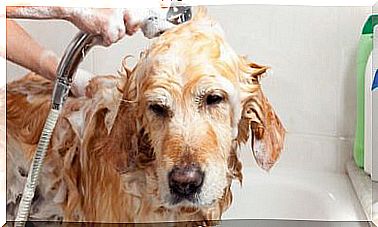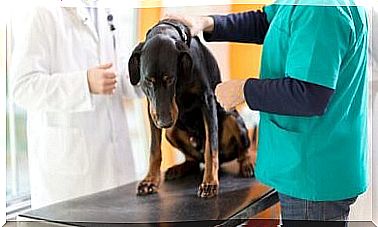How Do Dogs Help Children In Hospitals?
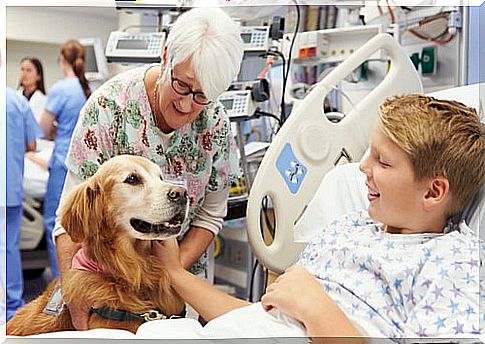
We all know that dogs are used to make our lives easier in a number of ways, especially during difficult moments. There are, for example, rescue dogs, police dogs, assistance dogs, guide dogs and therapy dogs that are used in different areas. There are dogs in the hospital that help the children interned there.
It is well known that no matter what role the dog plays, he always acts from the same motivation: the loyalty and love he feels for us. So it comes as no surprise that he is always successful in all of his tasks. Today it is about one of these tasks that has a very special value: dogs in the hospital that help the children there.
The little nudge that dogs give children in the hospital
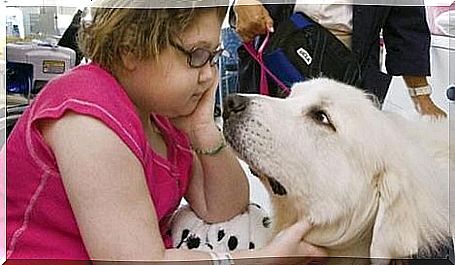
It is said that everything is better with a dog, and we at your animals could no longer agree. Such is the case of Alicia. She is an eight year old girl who has difficulty concentrating. In fact, it’s so bad that she can almost never focus on anything. But when she’s in the hospital for her therapy sessions and her good friend the Labrador Ron enters, Alicia becomes a different girl.
This is not a new idea, nor is it a novel method. Sigmund Freud, inventor of psychoanalysis, always took his dog, his faithful companion, with him to his appointments. There are reasons why animal-assisted therapy continues today.
If your child has any of these disorders, you are probably wondering whether animal assisted therapy is right for you. That’s why we want to tell you about their advantages here.
Why animal-assisted therapy and dogs in the hospital help children
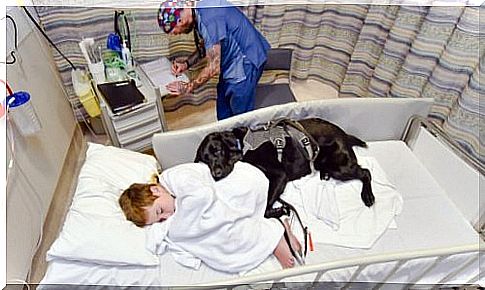
- Intermediary. This is the primary role dogs play between the doctor and your child in the hospital. They act like a bridge that facilitates communication between the two and helps the child to be more receptive. This type of therapy does not, of course, replace traditional medicine, but it supports the expression of feelings and sensations in the young patient.
- Promote interaction. Many believe that having a dog in the house is enough, but that’s not true. A positive development of the child does not come from it because it accidentally grows up in the surroundings of a dog, but is the result of extensive dog training and some tasks that the child masters in this way.
- Works for everyone. No matter what disorder your child has or how old they are, this type of therapy is useful for everyone. You just have to make sure beforehand that the child does not have an allergy to animal hair or a phobia. Other than these issues, there are no concerns about having dogs in the hospital for support.
- Has a positive effect on children’s motivation. This type of therapy is designed to allow children to playfully express their feelings in a relaxed, calm atmosphere. This awakens the motivation to keep going.
- Your child will be happier. Every child likes to spend time with an animal. Because of this, all children who have come out of animal-assisted therapy are happy and encouraged to keep going, even if they sometimes find it difficult despite their personal hurdles. This is a sign of the good results.
If you were not sure whether the therapy with dogs and dogs in the hospital is right for you and your child, do not doubt: They bring many, great advantages.
